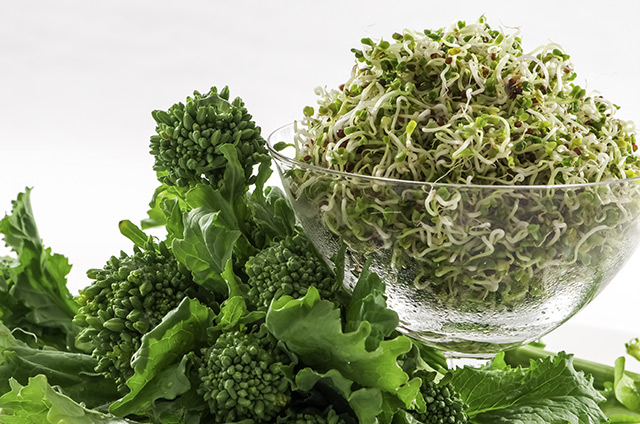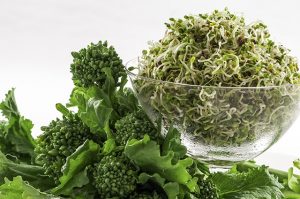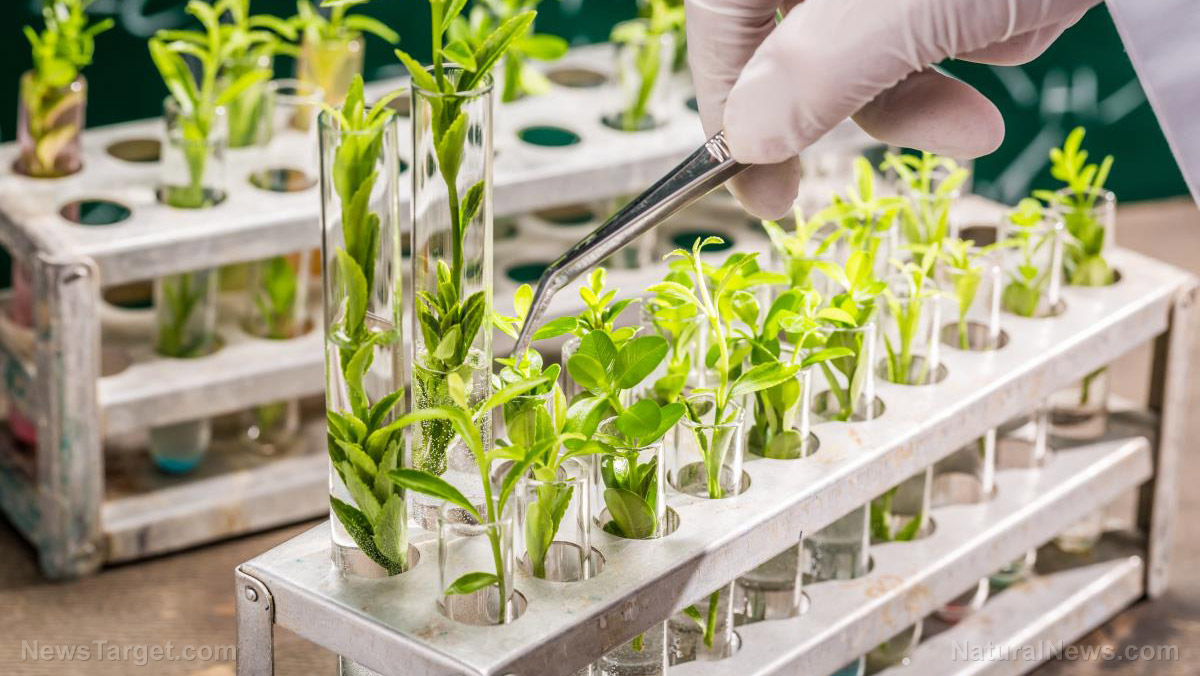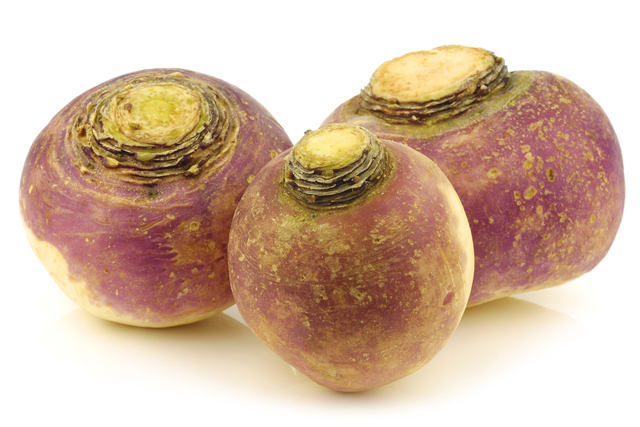Rapini – sources, health benefits, nutrients, uses and constituents at NaturalPedia.com
07/29/2017 / By Earl Garcia

Rapini is a green, leafy cruciferous vegetable that belongs to the same plant family as broccoli. The slightly bitter vegetable is a staple in Italian and Chinese cooking. Rapini, which means “little turnip” in Italian, is a cool-season crop is believe to be native to China and the Mediterranean region. Today’s rapini supply primarily comes from California, Arizona, New Jersey, Mexico, and Canada. The vegetable comes in many names such as broccoli rabe, broccoletti, broccolini, and raab.
List of known nutrients
As with other cruciferous vegetables, rapini is packed with essential nutrients that help stave off a plethora of diseases. An entry on the SELF Nutrition Data website lists all the important vitamins and minerals found in rapini. These include:
- Betaine
- Calcium
- Choline
- Copper
- Folate
- Iron
- Magnesium
- Niacin
- Pantothenic Acid
- Phosphorus
- Potassium
- Riboflavin
- Selenium
- Sodium
- Thiamin
- Total Omega-3 Fatty Acids
- Total Omega-6 Fatty Acids
- Vitamin A
- Vitamin B6
- Vitamin C
- Vitamin E
- Vitamin K
- Zinc
Medicinal uses for rapini
Like its cruciferous cousins, rapini is noted for its potential in cancer prevention. Rapini is known to contain an anti-cancer phytochemical known as indole-3-carbonol. The phytochemical is found to counter the adverse effects of free radicals and inhibit subsequent cellular damage. Likewise, a study shows that consuming cruciferous vegetables such as rapini may help reduce the odds of developing certain types of cancer.
The green, leafy vegetable is also touted for its beneficial effects on the cardiovascular system. Rapini contains potent anti-inflammatory constituents such as folate and vitamin C that reduce the levels of homocysteine, a harmful amino acid that damages the arteries and increases the risk of developing coronary heart disease. The vegetable is also found to help prevent hypertension and stroke.
Likewise, rapini is remarkably effective in improving the digestive system’s overall health. Rapini is found to contain soluble fibers that slow down digestion in the gastrointestinal tract. The soluble fiber is also known to melt into water and create a gel-like material that helps lower blood cholesterol and blood sugar levels. Thus, adding rapini to a high-carbohydrate meal such as a pasta dish may help reduce insulin response. As a result, this will prevent the onset of both hyper and hypoglycemia. Aside from this, rapini is touted for its high sulfur content that boosts its detox powers. The sulfur in rapini is known to facilitate liver detoxification. The vegetable is also noted to prevent the onset of type-2 diabetes.
In addition, rapini is notably high in vitamin K that fortifies the bones. In fact, a one-half cup serving of rapini contains as much as 169 micrograms of vitamin K1. This is equal to a regular vitamin dosage that helps prevent bone thinning. A survey of more than 72,000 nurses reveals that participants who took 109 mcg of vitamin K1 daily had lower odds of hip bone fracture over a 10-year study period.
Moreover, the vegetable is remarkably efficient in improving the immune system. According to an article on the health and wellness website Health Benefits Times, the vegetable helps stave off bacterial and viral infections. Furthermore, the vegetable is touted to prevent epileptic seizures, migraines and dementia. Rapini is also found to ease symptoms of premenstrual syndrome (PMS) and promote hormonal balance in both men and women. Aside from this, the vegetable supports eye health.
Body systems supported by rapini
Rapini is beneficial to the cardiovascular, skeletal, ocular, and immune systems. Likewise, the vegetable benefits the digestive, nervous, and both male and female reproductive systems.
Ways to use rapini
Rapini can be used in a variety of recipes. An article posted on the Food.com website features an interesting stir-fry recipe for rapini. The vegetable can also be used in various pasta dishes, as shown in an article on the AllRecipes.com website.
Where to learn more
- Herbs.news
- SuperfoodsNews.com
-
Fresh.news
Summary
Rapini prevents cancer, cardiovascular disease, and diabetes.
Rapini staves off osteoporosis, bacterial and viral infections, and dementia.
Rapini prevents PMS and promotes hormonal balance and eye health.
Rapini is beneficial to the cardiovascular, skeletal, ocular, and immune systems.
rapni supports the digestive, nervous, and both male and female reproductive systems.
Sources include:
Tagged Under: Rapini





















